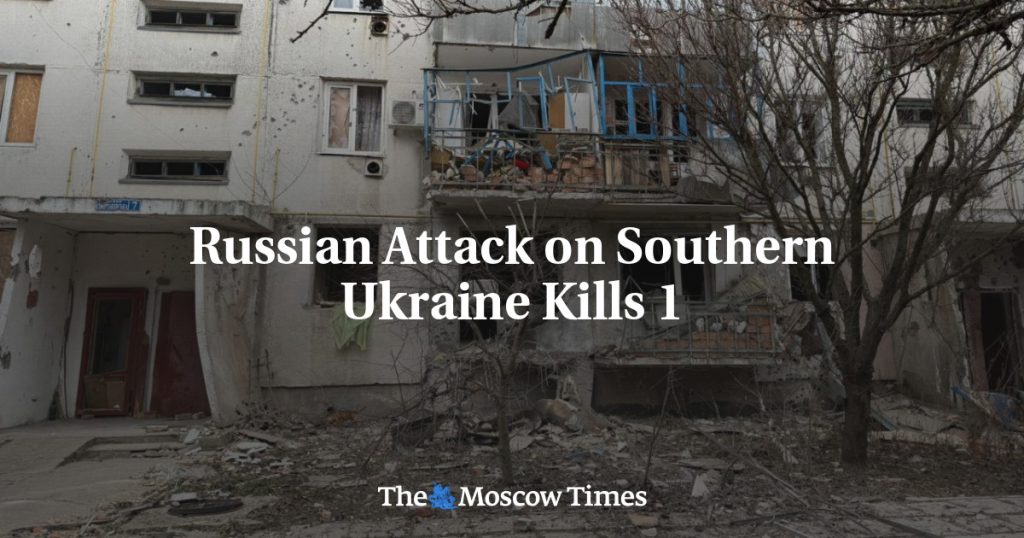In the ongoing conflict between Russia and Ukraine, a Russian air attack in Ukraine’s southern Zaporizhzhia region resulted in the death of one person, according to local authorities. The Russian forces are attempting to take full control of this frontline region, which Moscow claimed to have annexed in 2022 following a full-scale invasion of Ukraine. The attack involved 11 guided aerial bombs on the village of Stepnogorsk, located just a few kilometers from the front line. As a result of the strike, a five-story building was destroyed and one man lost his life, with rescuers recovering his body from the rubble, as reported by Zaporizhzhia region Governor Ivan Fedorov on Telegram.
This recent air attack is part of an escalation in aerial assaults, including Russian drone strikes on the center of Kyiv which claimed the lives of two individuals in the early hours of New Year’s Day. Ukraine is on high alert and fearing the possibility of a renewed Russian offensive towards the regional capital of Zaporizhzhia, situated around 35 kilometers from the front line and still under Ukrainian control. The situation remains tense as both sides continue to engage in military actions, leading to civilian casualties and destruction of property in the impacted areas. The conflict has brought devastation and suffering to the people caught in the crossfire.
In the midst of the escalating conflict, The Moscow Times, an independent news outlet, has faced challenges as it has been designated as an “undesirable” organization by Russia’s Prosecutor General’s Office. This has put the staff at risk of prosecution and threatened to silence independent journalism in Russia. The Moscow Times was previously labelled as a “foreign agent,” further complicating their ability to operate freely and report on events in the country. Despite these challenges, the journalists at The Moscow Times remain committed to providing accurate and unbiased reporting on Russia and are seeking support to continue their work and defend open, independent journalism in the face of repression.
The ongoing conflict between Russia and Ukraine has had a devastating impact on both countries, leading to loss of life, destruction of property, and heightened tensions in the region. The recent air attacks in the Zaporizhzhia region underscore the severity of the situation, with civilians bearing the brunt of the violence and instability. As the conflict continues to escalate, there is a pressing need for diplomatic solutions to end the bloodshed and restore peace to the region. The international community must step in to mediate and support efforts to de-escalate the conflict and prevent further loss of life.
The targeting of civilian areas in the recent air attacks highlights the disregard for human life and international norms by the warring parties. The use of aerial bombs and drone strikes in densely populated areas underscores the urgent need for a ceasefire and negotiations to resolve the conflict through peaceful means. Innocent civilians should not be caught in the crossfire of geopolitical tensions and military aggression. The international community must condemn these attacks on civilians and push for accountability for those responsible for such actions.
As the conflict in Ukraine continues to escalate, the need for humanitarian aid and support for the affected populations grows more urgent. The civilian casualties and destruction of infrastructure have created a dire humanitarian situation that requires immediate attention and resources. The international community must coordinate efforts to provide assistance to those in need and ensure access to basic necessities such as food, shelter, and medical care. Additionally, there is a need to address the long-term impacts of the conflict on the mental and physical well-being of the affected populations, including trauma and displacement. Only through collective action and solidarity can the international community mitigate the suffering caused by the conflict and work towards a sustainable peace in the region.


